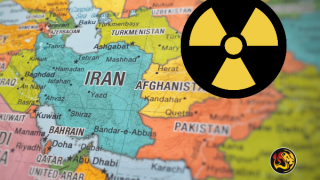
by Worthy News Jerusalem Bureau Staff
(Worthy News) – The Iranian judiciary announced Wednesday that it has executed Rouzbeh Vadi, a prominent nuclear scientist accused of spying for Israel and providing intelligence that led to the assassination of Iranian nuclear personnel during the 12-day war with Israel in June.
According to Iran’s Mizan Online, Vadi–who held a doctorate in nuclear engineering and worked at Iran’s Nuclear Science and Technology Research Institute under the Atomic Energy Organization–was convicted of espionage and intelligence collaboration with Israel’s Mossad agency. He was hanged after the Supreme Court upheld his sentence.
Authorities claimed Vadi confessed to supplying the Mossad with classified information about key uranium enrichment facilities, including Fordo and Natanz, and about specific nuclear scientists–at least one of whom was later assassinated in an Israeli airstrike during the war.
“Rozbeh Vadi… who had been arrested and tried on charges of espionage and intelligence cooperation with the Zionist regime, was executed this morning, August 6, 2025,” Mizan reported. “He played a direct role in the identification of one of Iran’s martyred nuclear scientists.”
The Iranian regime said Vadi had been recruited online by Mossad agents and met his handlers in Vienna five times. He reportedly received cryptocurrency payments and was promised an international passport in exchange for continued cooperation. Iranian security services began monitoring Vadi after one of his foreign trips and eventually uncovered his connection to Mossad.
Though the regime claims the execution followed “full criminal due process,” human rights groups have expressed concerns over the fairness of trials related to national security charges in Iran. It remains unclear when Vadi was arrested or formally sentenced.
War Fallout and Crackdown
The execution follows the unprecedented Israeli military campaign in June, which targeted Iranian military leaders, nuclear scientists, and enrichment facilities. According to Iranian state media, at least a dozen nuclear scientists were killed, including two who reportedly worked closely with Vadi–Abdolhamid Minouhchehr and Ahmad Zolfaghari.
The war, which ended after U.S.-brokered ceasefire negotiations, left hundreds dead and thousands injured across both countries. Israel said the campaign was necessary to cripple Iran’s nuclear and military capabilities and prevent what it called an imminent threat to the Jewish state.
Since the ceasefire, Iran has launched a sweeping internal crackdown. More than 700 individuals have reportedly been arrested for alleged espionage or collaboration with foreign intelligence services. Several have already been executed.
On the same day as Vadi’s execution, Iranian authorities also hanged a man convicted of plotting terrorist operations on behalf of the Islamic State group, signaling a broader effort to eliminate internal threats amid the regime’s heightened state of alert.
International Implications
Israel has not commented on Vadi’s execution, but senior Israeli officials have previously boasted of deep intelligence penetration into Iran’s security and nuclear establishments. One video released by Israeli intelligence in June appeared to show agents launching drones from inside Iranian territory.
While Iran seeks to present Vadi’s execution as a warning to would-be collaborators, analysts say it also reflects Tehran’s growing fears of infiltration at the highest levels of its security apparatus.
Iran remains one of the world’s top executioners, second only to China, according to Amnesty International. The current wave of state-sanctioned killings comes amid rising public dissatisfaction, ongoing protests, and escalating tensions with Israel and the West.
Copyright 1999-2026 Worthy News. This article was originally published on Worthy News and was reproduced with permission.
Latest News from Worthy News
A Christian pastor detained in Nicaragua since July 2025 has been released from prison but placed under house arrest along with five other Christian believers, Worthy News established on Thursday.
An injured Christian pastor in eastern India says recalling Bible verses gave him strength to survive hours of brutal abuse by a Hindu mob that accused him of converting Hindus to Christianity.
U.S. forces carried out five sets of precision strikes against Islamic State targets across Syria between Jan. 27 and Feb. 2, the U.S. military’s U.S. Central Command announced Wednesday.
U.S. forces carried out five sets of precision strikes against Islamic State targets across Syria between Jan. 27 and Feb. 2, the U.S. military’s U.S. Central Command announced Wednesday.
U.S. Special Envoy Steve Witkoff announced on Feb. 5 that Ukraine and Russia have agreed to exchange 314 prisoners, marking the first such swap in five months and the most tangible outcome yet from U.S.-brokered talks held in Abu Dhabi. The exchange followed multiple days of trilateral negotiations involving delegations from Washington, Kyiv, and Moscow.
The Supreme Court of the United States on Wednesday declined to take up a legal challenge to California’s newly drawn congressional map, allowing the state to proceed with district lines that effectively eliminate five Republican-held U.S. House seats.
President Donald Trump said Thursday that Iran has entered negotiations with the United States because it fears potential military action, as both sides prepare for high-stakes talks expected to take place in Oman. Speaking at the National Prayer Breakfast in Washington, Trump said Tehran “doesn’t want us to hit them,” adding that a U.S. naval fleet is in the region as pressure increases.






